When it comes to choosing the right electrical cable for your wiring projects, one of the key decisions you’ll face is whether to go with aluminum cable or copper cable. Both aluminum and copper cables have their own set of advantages and considerations, and understanding the differences between the two can help you make an informed decision that meets your specific needs. Aluminum cable has been used for electrical wiring for decades and is known for its light weight and cost-effectiveness. On the other hand, copper cable is a popular choice due to its superior conductivity and durability. Let’s explore the key factors to consider when deciding between aluminum cable and copper cable for your wiring projects. Conductivity: Copper is a highly conductive metal, making it an excellent choice for carrying electrical currents. Its low electrical resistance allows for efficient flow of electricity, resulting in minimal power loss. This makes copper cable ideal for applications where high conductivity is essential, such as in residential and commercial buildings. Aluminum, while not as conductive as copper, is still a viable option for electrical wiring. Its conductivity is lower than copper, which means it may not perform as efficiently in carrying electrical currents. However, aluminum cable can still be a cost-effective choice for projects where conductivity is not the primary concern. Durability: Copper is a durable metal that is resistant to corrosion, making it a long-lasting choice for electrical wiring. Copper cables are known for their strength and reliability, and they can withstand a variety of environmental conditions without deteriorating. This durability makes copper cable a suitable option for both indoor and outdoor applications. Aluminum, on the other hand, is more susceptible to corrosion than copper. While aluminum cable can still offer reliable performance under the right conditions, it may require additional maintenance to prevent corrosion and ensure longevity. Proper installation and protection can help mitigate the effects of corrosion on aluminum cable, making it a suitable choice for specific applications. Cost: One of the key advantages of aluminum cable is its lower cost compared to copper cable.
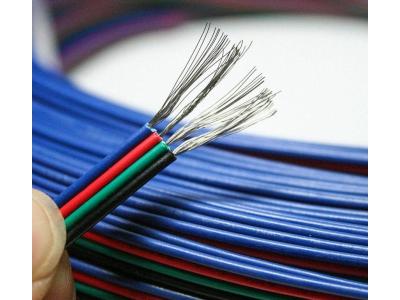
.
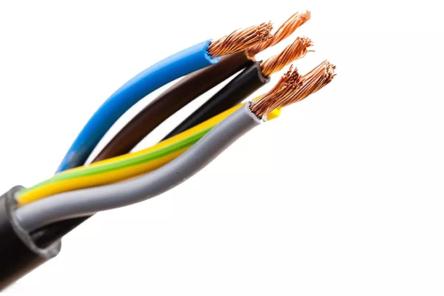 Aluminum is a more affordable material, which can lead to cost savings for projects that require large quantities of cable. This cost-effectiveness makes aluminum cable an attractive option for budget-conscious individuals and organizations looking to complete electrical wiring projects without overspending. Copper cable, while more expensive than aluminum, offers superior conductivity and durability that can justify its higher price point. The initial investment in copper cable may be higher, but its long-term performance and reliability can offset the upfront costs. When considering the total cost of ownership, including maintenance and replacement expenses, copper cable may be a more cost-effective choice in the long run. Compatibility: When it comes to compatibility with electrical components and systems, copper cable is widely recognized as the standard material. Many electrical devices and systems are designed to work seamlessly with copper wiring, ensuring optimal performance and safety. Copper cable is commonly used in various electrical applications, which can make it easier to find compatible components and accessories. Aluminum cable, while less common than copper, can still be compatible with many electrical systems. However, aluminum wiring may require specific connectors and terminations to ensure proper connections and prevent potential issues such as overheating. It’s important to consult with an experienced electrician or contractor to determine the compatibility of aluminum cable with your specific electrical setup. Safety: Safety is a crucial consideration when choosing electrical cable for your wiring projects. Both aluminum and copper cables can be safe and reliable choices when installed correctly and maintained properly. However, there are certain factors to keep in mind to ensure the safety of your electrical system. Copper cable is known for its fire resistance and low risk of overheating, making it a safe option for electrical wiring.
Aluminum is a more affordable material, which can lead to cost savings for projects that require large quantities of cable. This cost-effectiveness makes aluminum cable an attractive option for budget-conscious individuals and organizations looking to complete electrical wiring projects without overspending. Copper cable, while more expensive than aluminum, offers superior conductivity and durability that can justify its higher price point. The initial investment in copper cable may be higher, but its long-term performance and reliability can offset the upfront costs. When considering the total cost of ownership, including maintenance and replacement expenses, copper cable may be a more cost-effective choice in the long run. Compatibility: When it comes to compatibility with electrical components and systems, copper cable is widely recognized as the standard material. Many electrical devices and systems are designed to work seamlessly with copper wiring, ensuring optimal performance and safety. Copper cable is commonly used in various electrical applications, which can make it easier to find compatible components and accessories. Aluminum cable, while less common than copper, can still be compatible with many electrical systems. However, aluminum wiring may require specific connectors and terminations to ensure proper connections and prevent potential issues such as overheating. It’s important to consult with an experienced electrician or contractor to determine the compatibility of aluminum cable with your specific electrical setup. Safety: Safety is a crucial consideration when choosing electrical cable for your wiring projects. Both aluminum and copper cables can be safe and reliable choices when installed correctly and maintained properly. However, there are certain factors to keep in mind to ensure the safety of your electrical system. Copper cable is known for its fire resistance and low risk of overheating, making it a safe option for electrical wiring.
..
 Copper’s superior conductivity helps dissipate heat effectively, reducing the chances of electrical fires and other hazards. Proper installation techniques and regular inspections can further enhance the safety of copper cable installations. Aluminum cable, while generally safe when installed properly, may pose a slightly higher risk of overheating and fire compared to copper. This is due to aluminum’s lower conductivity and higher resistance, which can result in greater heat generation under heavy electrical loads. To ensure the safety of aluminum cable installations, proper installation practices and regular maintenance are essential. Conclusion: In conclusion, the choice between aluminum cable and copper cable depends on various factors including conductivity, durability, cost, compatibility, and safety. Copper cable offers superior conductivity and durability, making it a reliable choice for high-performance electrical applications. While aluminum cable may be less conductive and durable than copper, it can still be a cost-effective option for projects that prioritize affordability. When selecting the right cable for your electrical wiring needs, consider the specific requirements of your project and weigh the advantages and considerations of aluminum and copper cables. Consulting with an experienced electrician or contractor can help you make an informed decision that meets your performance, budget, and safety requirements. By evaluating these key factors, you can choose the cable that best suits your needs and ensures the success of your wiring projects. Additionally, it’s important to consider future maintenance and potential upgrades when selecting between aluminum cable and copper cable for your electrical wiring projects.
Copper’s superior conductivity helps dissipate heat effectively, reducing the chances of electrical fires and other hazards. Proper installation techniques and regular inspections can further enhance the safety of copper cable installations. Aluminum cable, while generally safe when installed properly, may pose a slightly higher risk of overheating and fire compared to copper. This is due to aluminum’s lower conductivity and higher resistance, which can result in greater heat generation under heavy electrical loads. To ensure the safety of aluminum cable installations, proper installation practices and regular maintenance are essential. Conclusion: In conclusion, the choice between aluminum cable and copper cable depends on various factors including conductivity, durability, cost, compatibility, and safety. Copper cable offers superior conductivity and durability, making it a reliable choice for high-performance electrical applications. While aluminum cable may be less conductive and durable than copper, it can still be a cost-effective option for projects that prioritize affordability. When selecting the right cable for your electrical wiring needs, consider the specific requirements of your project and weigh the advantages and considerations of aluminum and copper cables. Consulting with an experienced electrician or contractor can help you make an informed decision that meets your performance, budget, and safety requirements. By evaluating these key factors, you can choose the cable that best suits your needs and ensures the success of your wiring projects. Additionally, it’s important to consider future maintenance and potential upgrades when selecting between aluminum cable and copper cable for your electrical wiring projects.
…
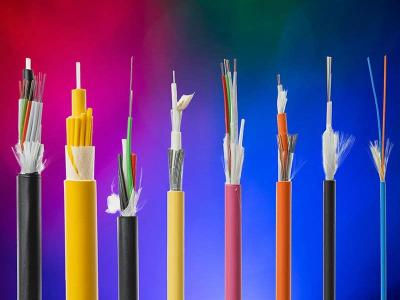 While aluminum cable may offer initial cost savings, the potential long-term maintenance and repair costs associated with corrosion prevention and compatibility issues should be taken into account. On the other hand, the higher upfront cost of copper cable may be justified by its superior conductivity and durability, which can lead to fewer maintenance requirements over time. Moreover, the environmental impact of each type of cable should also be considered. Aluminum is a more sustainable material than copper, as it is lighter and requires less energy to produce. Choosing aluminum cable over copper cable can help reduce the environmental footprint of your electrical wiring projects and contribute to sustainability efforts. In conclusion, the choice between aluminum cable and copper cable ultimately depends on your specific needs, preferences, and budget considerations. While copper cable offers superior conductivity and durability, aluminum cable can be a cost-effective alternative for projects where affordability is a key factor. By carefully evaluating the advantages and considerations of each type of cable, you can make an informed decision that aligns with your goals and requirements. Regardless of whether you choose aluminum cable or copper cable for your electrical wiring projects, it’s crucial to work with a reputable supplier and qualified professionals for the installation and maintenance of your electrical system. Proper installation practices, regular inspections, and compliance with industry standards can help ensure the safety, reliability, and performance of your electrical wiring for years to come. In conclusion, both aluminum cable and copper cable have their own set of advantages and considerations, and the choice between the two depends on factors such as conductivity, durability, cost, compatibility, safety, maintenance, and environmental impact. By carefully evaluating these factors and consulting with experienced professionals, you can select the cable that best meets your specific needs and requirements. Whether you prioritize conductivity, affordability, durability, or sustainability, there is a cable option that aligns with your objectives and helps you achieve a successful electrical wiring project.
While aluminum cable may offer initial cost savings, the potential long-term maintenance and repair costs associated with corrosion prevention and compatibility issues should be taken into account. On the other hand, the higher upfront cost of copper cable may be justified by its superior conductivity and durability, which can lead to fewer maintenance requirements over time. Moreover, the environmental impact of each type of cable should also be considered. Aluminum is a more sustainable material than copper, as it is lighter and requires less energy to produce. Choosing aluminum cable over copper cable can help reduce the environmental footprint of your electrical wiring projects and contribute to sustainability efforts. In conclusion, the choice between aluminum cable and copper cable ultimately depends on your specific needs, preferences, and budget considerations. While copper cable offers superior conductivity and durability, aluminum cable can be a cost-effective alternative for projects where affordability is a key factor. By carefully evaluating the advantages and considerations of each type of cable, you can make an informed decision that aligns with your goals and requirements. Regardless of whether you choose aluminum cable or copper cable for your electrical wiring projects, it’s crucial to work with a reputable supplier and qualified professionals for the installation and maintenance of your electrical system. Proper installation practices, regular inspections, and compliance with industry standards can help ensure the safety, reliability, and performance of your electrical wiring for years to come. In conclusion, both aluminum cable and copper cable have their own set of advantages and considerations, and the choice between the two depends on factors such as conductivity, durability, cost, compatibility, safety, maintenance, and environmental impact. By carefully evaluating these factors and consulting with experienced professionals, you can select the cable that best meets your specific needs and requirements. Whether you prioritize conductivity, affordability, durability, or sustainability, there is a cable option that aligns with your objectives and helps you achieve a successful electrical wiring project.
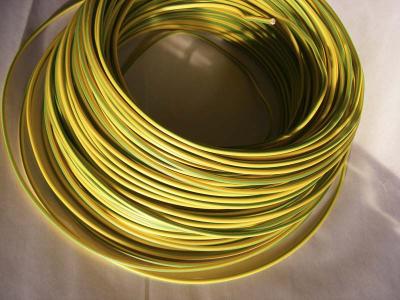
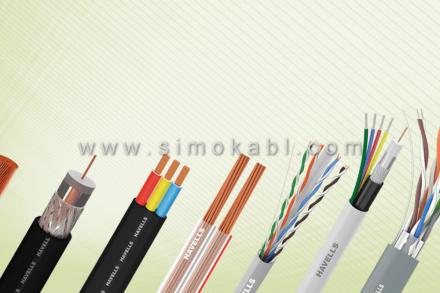
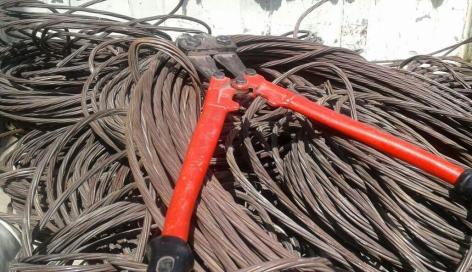
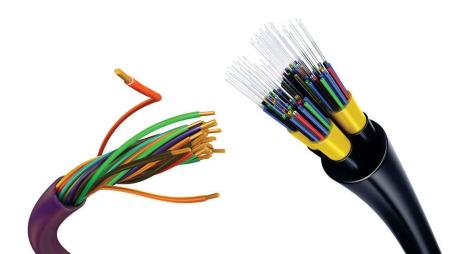
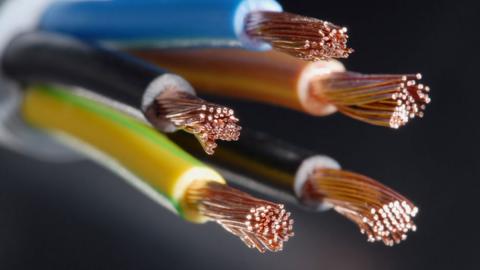
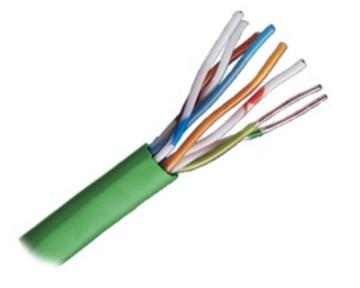
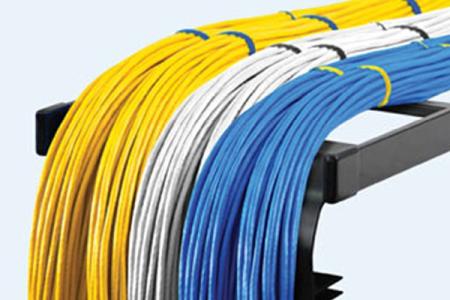
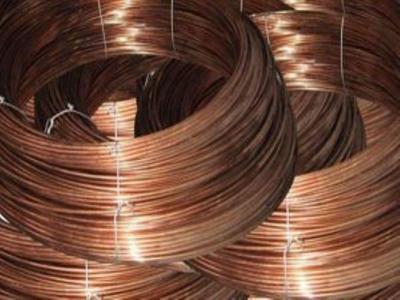
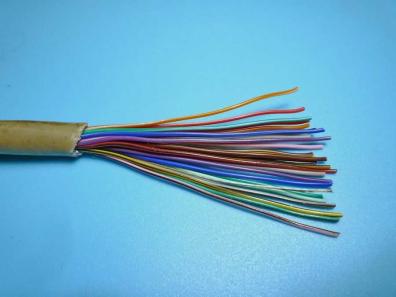
Your comment submitted.